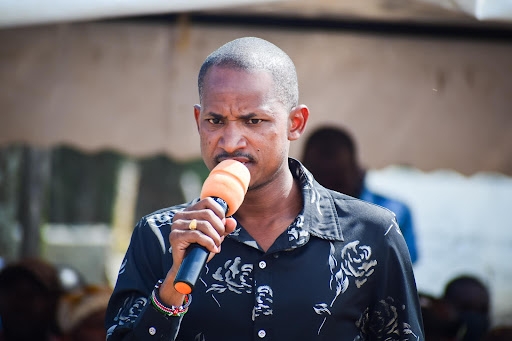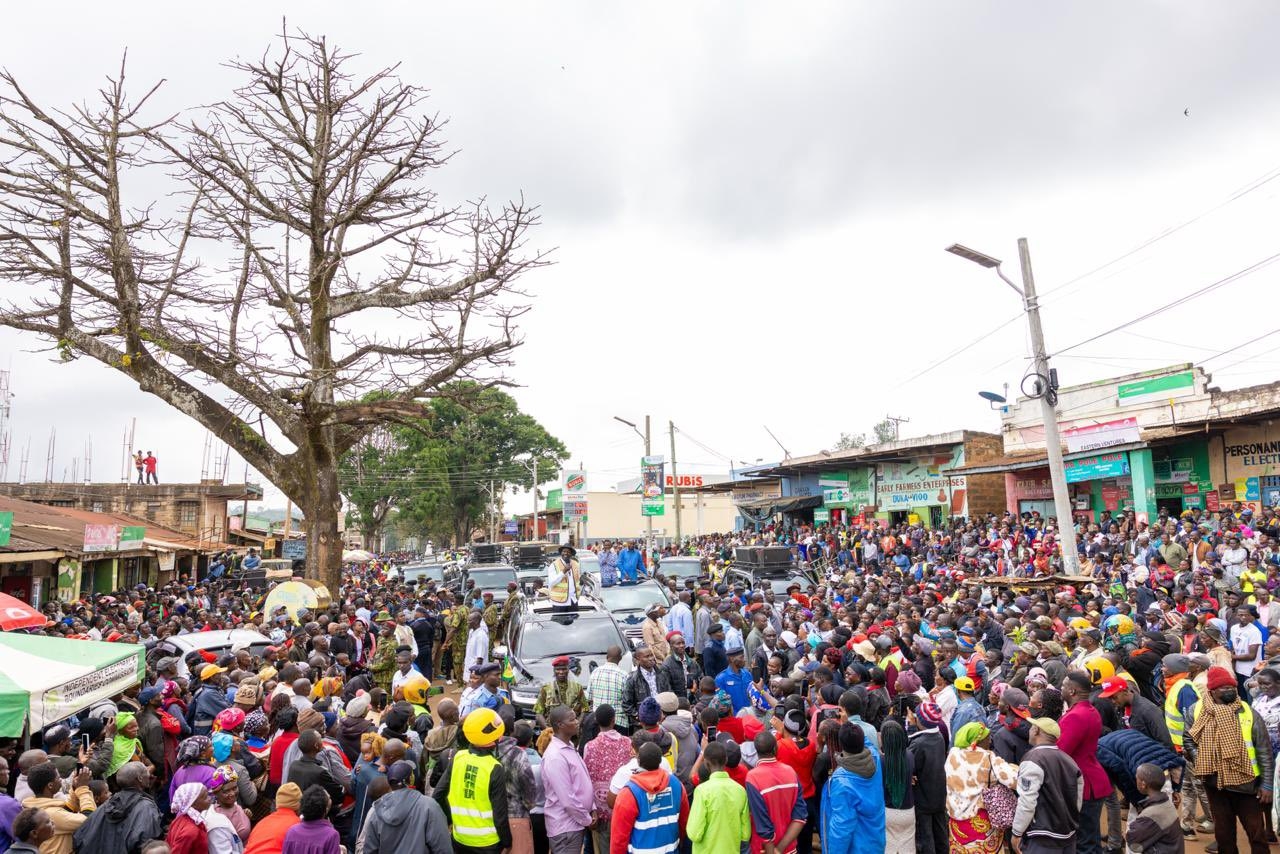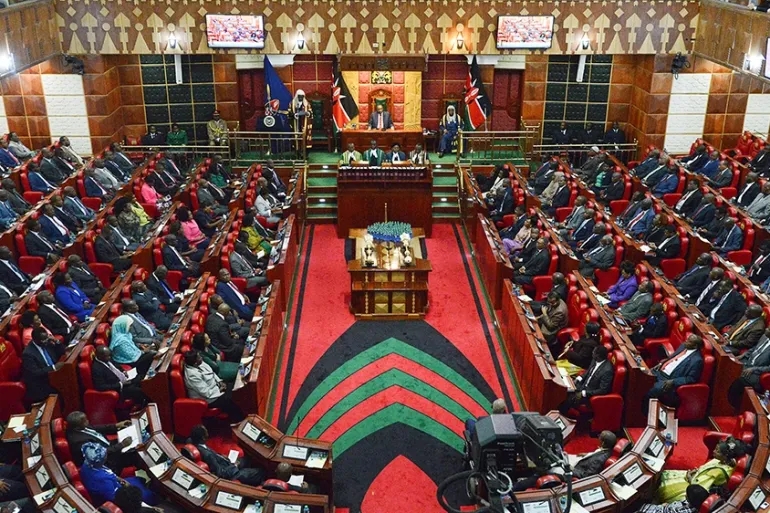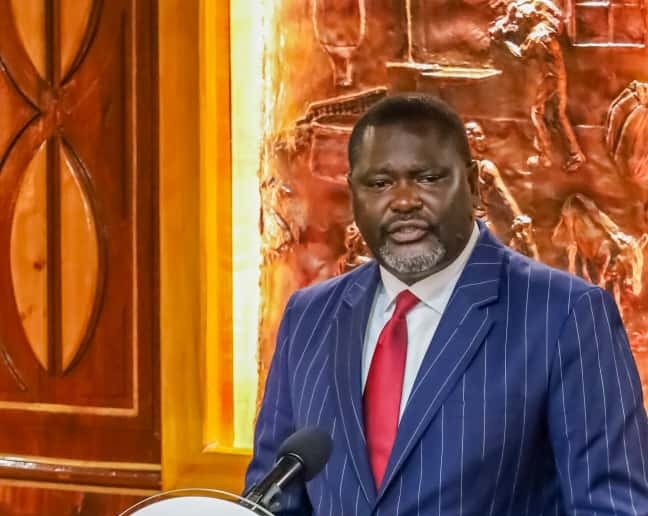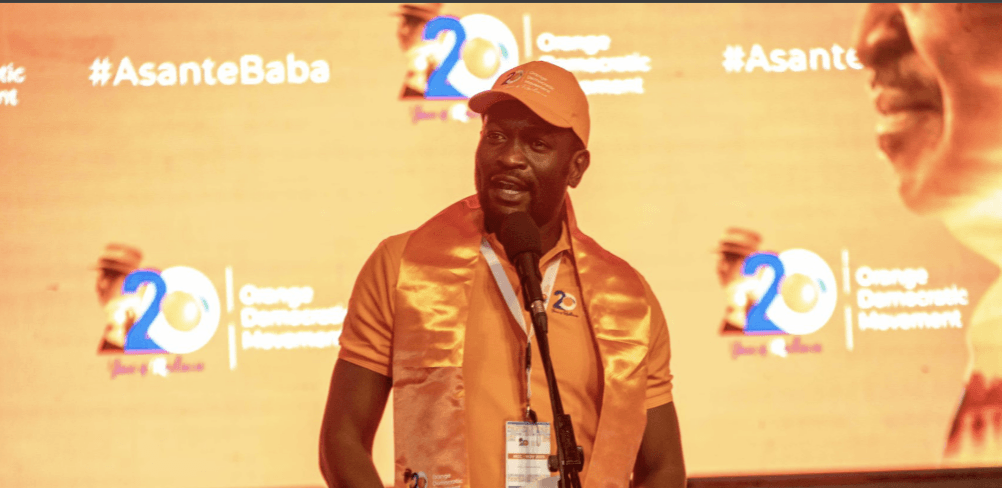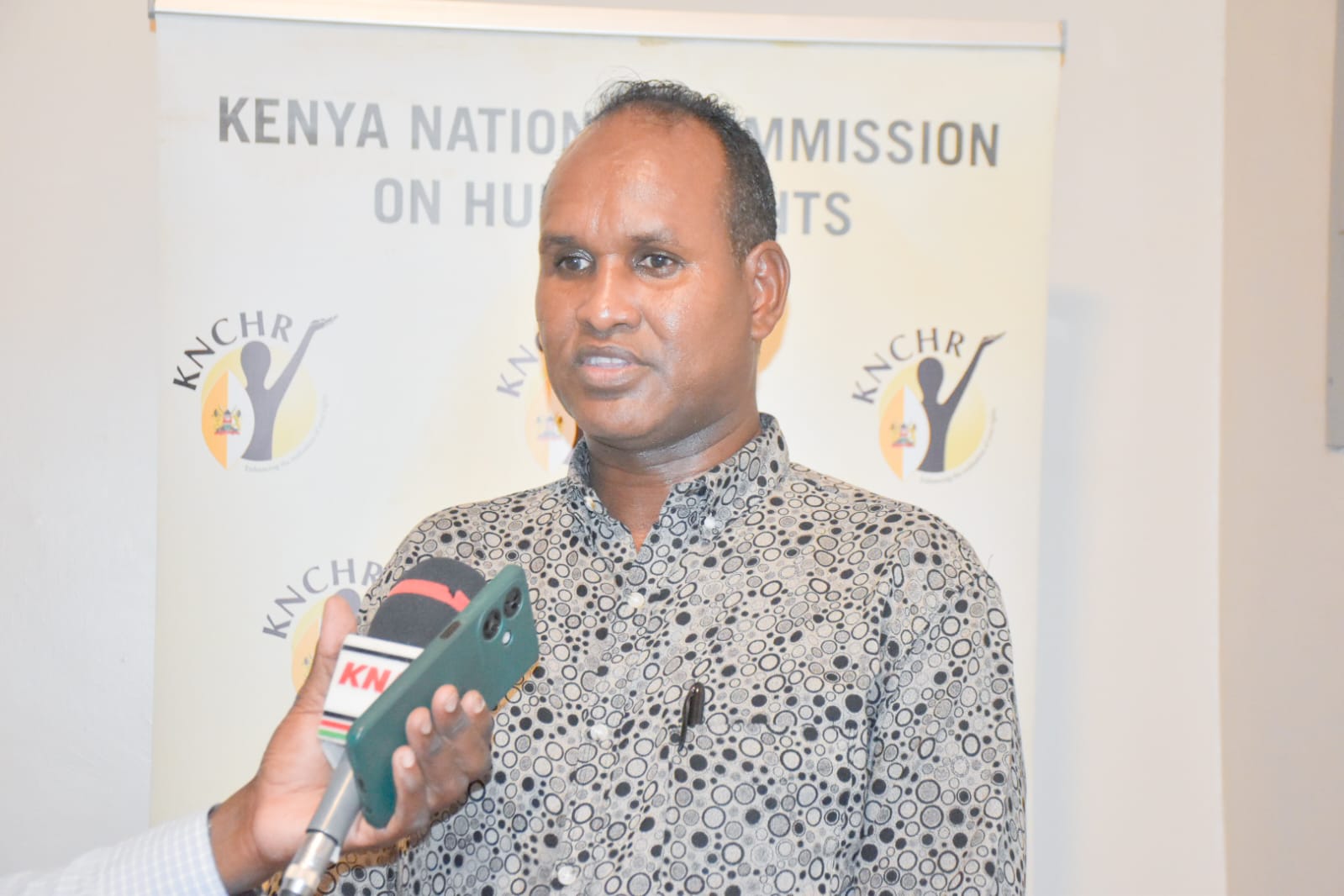 Garissa human Rights Defenders Network chairperson Mukta Dahir./STEPHEN ASTARIKO
Garissa human Rights Defenders Network chairperson Mukta Dahir./STEPHEN ASTARIKO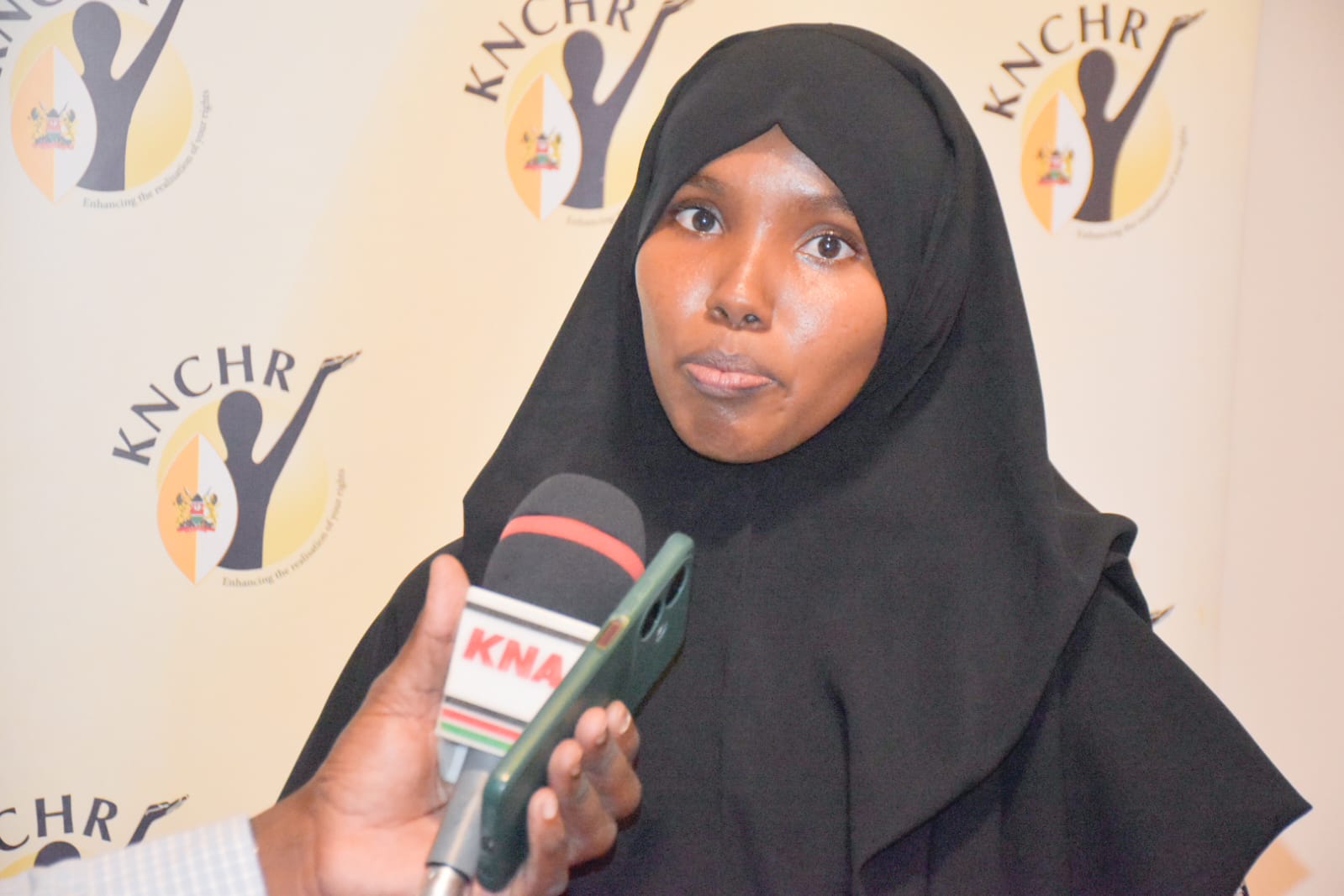 Nimo Iftin, a human rights defender and an FGM survivor
speaking to the press./STEPHEN ASTARIKO
Nimo Iftin, a human rights defender and an FGM survivor
speaking to the press./STEPHEN ASTARIKO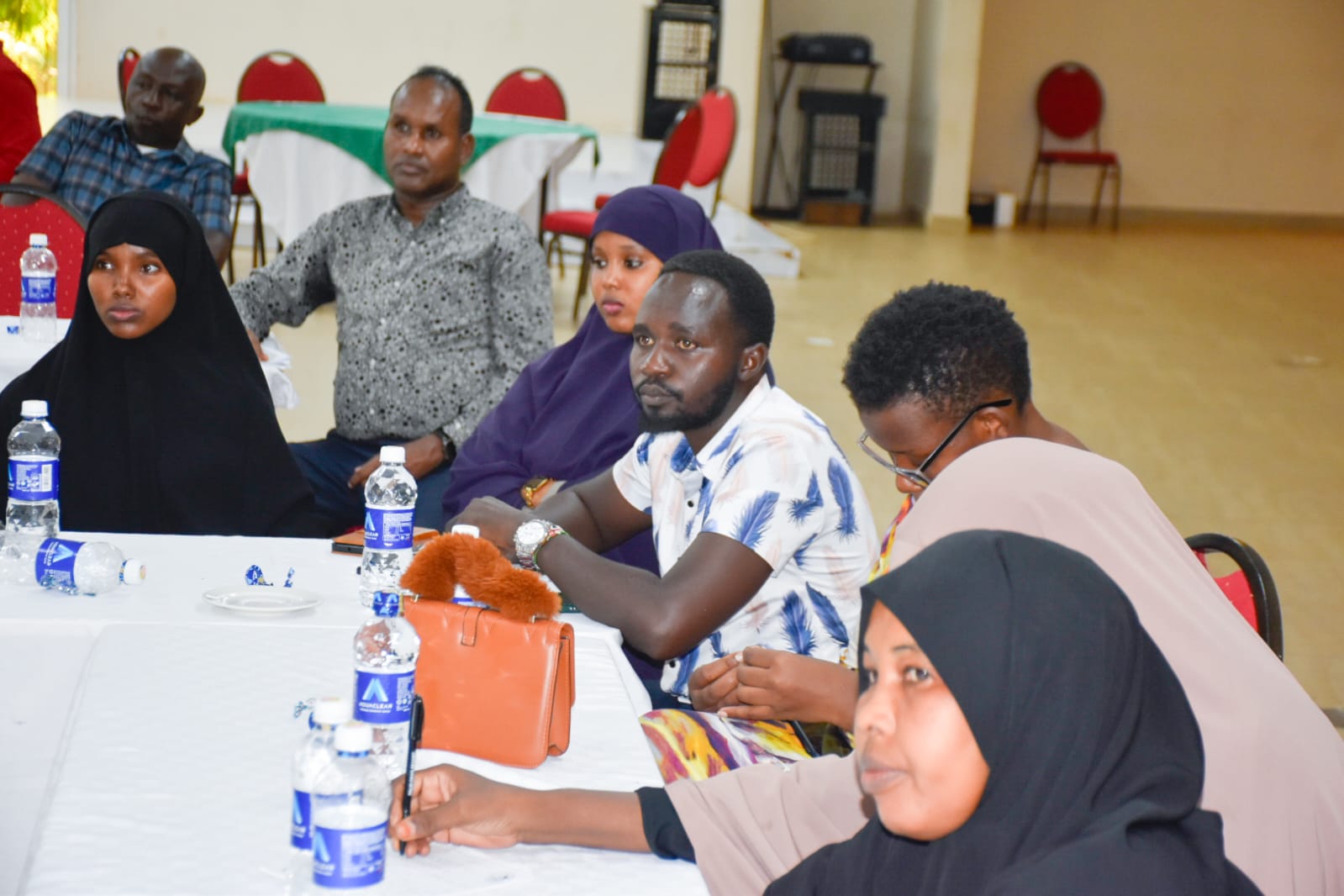 Stakeholders from Garissa during the
meeting at a Garissa hotel./STEPHEN ASTARIKO
Stakeholders from Garissa during the
meeting at a Garissa hotel./STEPHEN ASTARIKODeep-rooted cultural beliefs have been cited as the biggest barriers to ending female
genital mutilation, gender-based violence, and other harmful
cultural practices in Garissa county.
The concerns emerged during a
stakeholder engagement forum organised by the Kenya National Commission on
Human Rights (KNCHR) to discuss sexual and reproductive health rights, GBV, and
harmful cultural practices in the county.
Participants from the security
sector, health services, education, women’s groups, and human rights
organisations emphasised the need for a coordinated, community-driven approach
to reduce prevalence rates.
FGM remains alarmingly high in
Garissa, with an 83 per cent prevalence rate, according to the Kenya Demographic Health
Survey.
Human rights defender and FGM
survivor Nimo Iftin Ali said cultural beliefs surrounding FGM are deeply
entrenched and continue to undermine progress. She highlighted the
misconception that women who undergo FGM are purer and holier, which
perpetuates the practice.
“The deep-rooted cultural beliefs
that continue to perpetuate these harmful practices despite decades of advocacy
and public education campaigns should concern all stakeholders,” she said. Ali
said religious leaders have a critical role in challenging these
notions.
Muktar Dahir, chairperson of the Garissa Human Rights Defenders Network, pointed to weak enforcement of existing laws and lack of accountability within government agencies and the National Police Service as major obstacles.
He said FGM and GBV are increasingly shifting
from urban to rural areas, with parents taking children to villages during
holidays, particularly in December, when monitoring is limited.
KNCHR commissioner Denis Wamalwa acknowledged the cultural challenges but urged stakeholders to avoid blame-shifting.
He urged community elders, religious leaders, government
agencies and the civil society to work collectively towards sustainable solutions.
“We must stop pointing fingers and
take joint responsibility. Ending FGM and GBV requires all of us—from the
family unit to the highest levels of leadership—to act,” a women’s rights
advocate during the forum said.
Health practitioners highlighted the
devastating physical and psychological impacts of FGM and GBV, while teachers
emphasised the critical role of schools in raising awareness and empowering
learners to reject retrogressive traditions.



